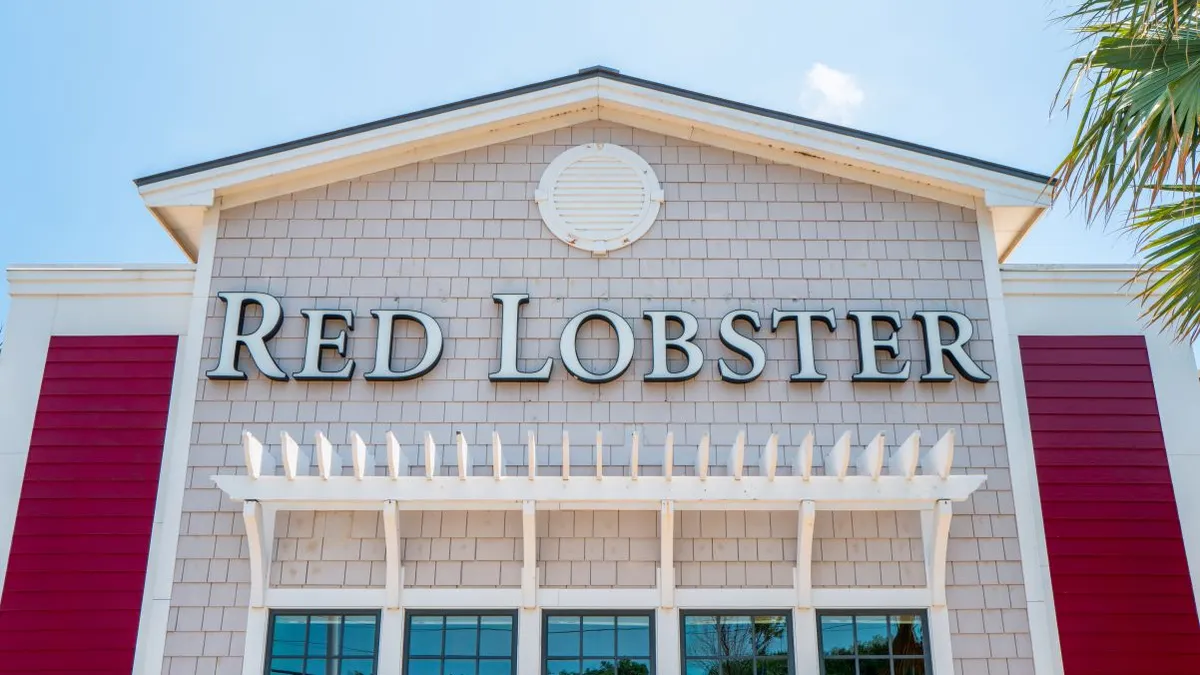Red Lobster received court approval of its restructuring plan and sale to Fortress Investment Group, via RL Investor Holdings, on Thursday, the company said in a press release. The company previously filed for Chapter 11 bankruptcy protections in May.
RL Investor Holdings, the stalking horse bidder, emerged as the buyer after the chain failed to receive additional qualified bids in July. RL Investor Holdings was an entity created by Fortress alongside co-investors TCW Private Credit and Blue Torch.
The acquisition is expected to close before the end of the month. Following the completed buyout, Damola Adamolekun, former CEO of P.F. Chang’s, will officially become CEO of Red Lobster. Jonathan Tibus, who held Red Lobster’s CEO role through the reorganization and Chapter 11 proceedings, will step down and leave the company.
“With our new backers, we have a comprehensive and long-term investment plan — including a commitment of more than $60 million in new funding — that will help to reinvigorate the iconic brand while keeping the best of its history,” Adamolekun said in a statement.
Red Lobster will operate with 544 locations across 44 U.S. states and four Canadian provinces. The chain closed roughly 100 units in May and planned to close another 23 stores deemed unprofitable by the end of August.
The restructuring plan includes a “trust for the benefit of general unsecured creditors that will pursue litigation against equity holders and former officers and directors, including its former CEO [Paul Kenny] related to, among other things, certain ‘failed or ill-advised strategic initiatives,’ including the restaurant’s ‘Ultimate Endless Shrimp’ promotion,” Sarah Foss, global head of legal at Debtwire, said in a statement emailed to Restaurant Dive.
“The litigation will likely be centered around whether the promotion and development of the ‘Ultimate Endless Shrimp’ promotion was a waste of corporate assets and involved a breach of the former CEO’s fiduciary duties to the company as well as unjust enrichment on the part of former equity sponsor Thai Union, among other potential claims,” Foss said.
Thai Union, the company’s previous minority owner, has denied these claims.














